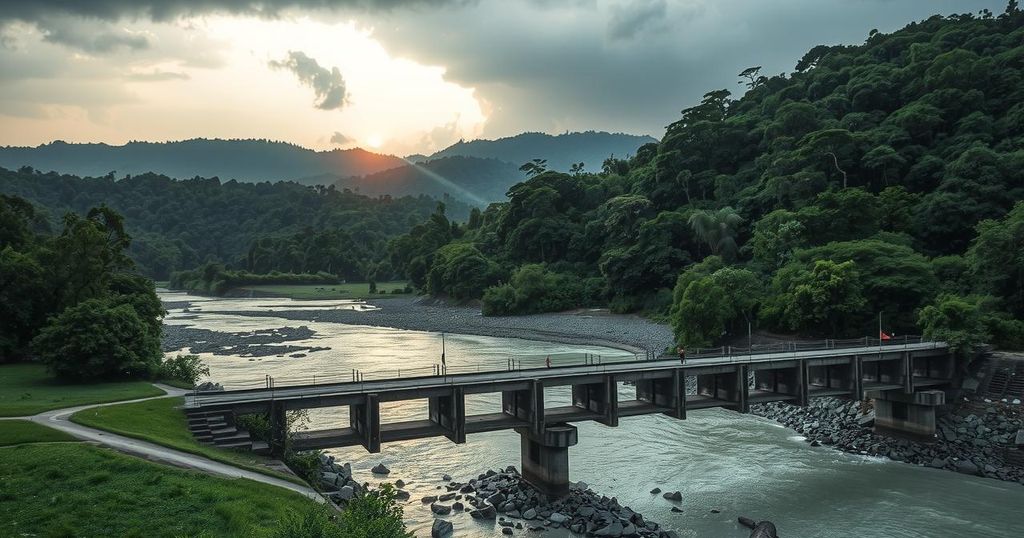The Escalating Conflict in the Democratic Republic of Congo: A Closer Look at Rwanda’s Role and the DRC’s Struggle
Rwanda-backed M23 rebels have reportedly captured Goma, escalating the ongoing conflict in the DRC. The M23, composed primarily of ethnic Tutsis, accuses the DRC government of failing to respect a peace agreement aimed at fostering Tutsi inclusion. Rwanda is accused of supporting the M23 militarily, prompting concerns of an infringement on DRC sovereignty and potential regional conflict.
The ongoing conflict in the Democratic Republic of Congo (DRC) has intensified, with reports of Rwanda-backed rebels claiming control of Goma, a crucial city. The M23 group, comprised mainly of ethnic Tutsis, accuses the DRC government of failing to uphold a 2009 peace accord that promised inclusion of Congolese Tutsis in governance and military. The resurgence of fighting has caused extensive casualties and exacerbated the humanitarian crisis.
The M23 aims to protect Tutsi interests amid threats from ethnic Hutu militias, yet critics assert this serves as a guise for Rwanda to gain influence in eastern DRC. Control over mining areas, like Rubaya, has provided the M23 with significant revenue, allegedly amounting to $800,000 monthly through production taxes. Rwanda’s involvement has raised suspicions and fears of an invasion, as numerous reports highlight Rwandan troop operations alongside M23 rebels.
UN experts concluded that Rwanda’s military support and operational control over M23 activities violate DRC sovereignty. Dysfunctions in diplomatic relations have emerged, with the DRC severing ties with Rwanda, stirring tensions that could escalate into a regional conflict. The strategic significance of Goma cannot be understated, as its capture would place millions of civilians in jeopardy and could potentially lead to widespread human rights abuses.
The conflict in the DRC has historical roots that trace back decades, deeply intertwined with ethnic divisions and regional geopolitics. The M23 rebel group emerged from tensions related to the incorporation of ethnic Tutsis in the military and political landscape. Rwanda’s proximity to the DRC and its historical connections with the Tutsi population contribute to the complexity of the conflict. The situation has significant implications for regional stability and humanitarian conditions in Central Africa, as evidenced by ongoing violence and international humanitarian crises.
The conflict in the Democratic Republic of Congo represents a complex interplay between ethnic divisions and regional power dynamics, particularly concerning Rwanda’s involvement. The situation in Goma and the actions of the M23 group underscore the fragility of peace within the region. Further escalation could lead to profound humanitarian crises and significant geopolitical repercussions in East Africa, emphasizing the urgency for international intervention and diplomatic resolutions.
Original Source: news.sky.com




Post Comment